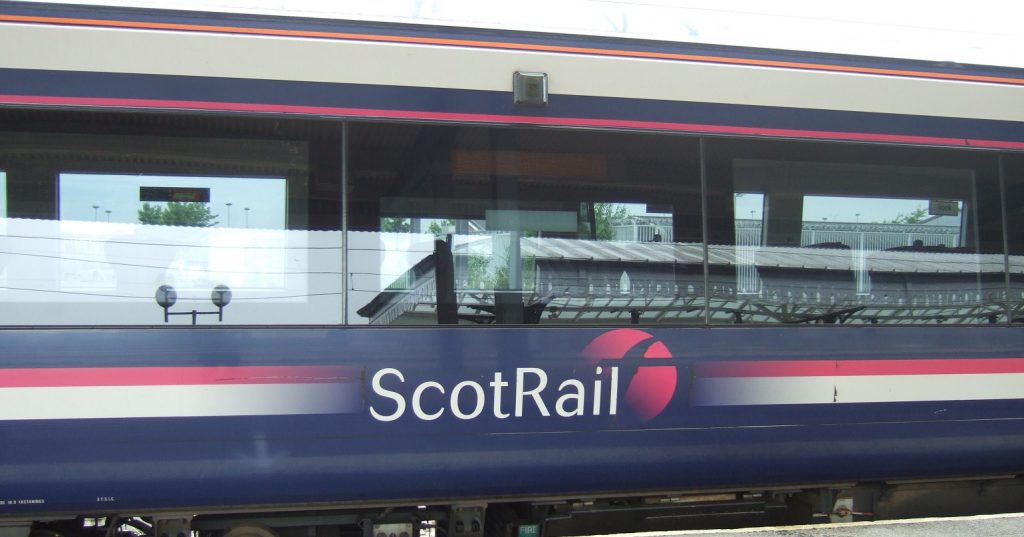The Case For High Speed Rail

Photo by Irargerich via flickr
I was quite shocked to discover that during their party conference at the weekend, the Green Party of England & Wales has voted to oppose plans for High Speed 2 (HS2), the proposed new high-speed rail line between London and Birmingham.
I joined an intercity rail company in 1997, just months after privatisation. Since then, I’ve seen many grandiose schemes come and go with varying degrees of enthusiasm. From relatively small-scale plans to electrify the Edinburgh to Glasgow route, to fanciful notions of tunnelling between Ireland and Wales, most of them come up against the reality of economics.
One dream has remained throughout most of the last 30 years – a proper high-speed network serving Britain’s cities. The West Coast and East Coast Main Lines are not that solution. The WCML is far too hilly and bendy – Network Rail and in their previous incarnation, Railtrack, have both failed in an attempt to provide a track fit for Virgin’s Pendolino trains to run at 140mph for the journey from Glasgow to London. As for the ECML, straight lines mean that 125mph is common but there are pinch-points that regularly see intercity trains compete with regional trains compete with freight trains for the same piece of track. Both routes are close to capacity, indeed creaking at the seams.
What is needed is a dedicated high-speed line that runs through the spine of the country. HS2 will be the start of this process, so it’s disappointing to see the GPEW claim that they remain dedicated to high speed rail, just not this project.
While I agree that it has flaws – I think if it was ever realistically to reach Scotland then they would have built it from the north southwards to guarantee that – to see the Greens turn their back on the only game in town, and likely to be the only game for a long time to come, is quite annoying.
They cite economic reasons. I’ve never seen a consultant’s report about the railways that was proved accurate yet. Every single new scheme that has come to fruition has vastly underestimated how much the public will use the railways. The last one I saw, for the brand new Laurencekirk station in Aberdeenshire, estimated only 36,000 passengers a year would use it. In fact, 64,000 people used it in it’s first year. Many of those first franchises after privatisation were overwhelmed by the increase in passenger numbers when they bought new trains – close to 50% in some cases. The government are estimating another 40% rise in rail passengers by 2050, although I bet that’s surpassed quite quickly.
As for environmental factors, electric trains are more silent than diesel of course, and you can mitigate the impact on the countryside by having the tracks placed in cuttings in sensitive areas – although anecdotally, I’ve talked to people who choose to go day trips to places they’ve never considered before after seeing them from a train window.
The big plus for the environment, of course, is the reduction in plane and car travel associated with high-speed rail. In Spain, airlines had a 90% market share for the Madrid to Barcelona route until the new railway line opened. Today, it’s less than half that and falling.
The more we extend HS2 north of Birmingham, the greater the environmental benefits. In 2004, rail had a 38% share of the Manchester to London air/rail market. Today, it’s over 70%.
But we can’t extend something that’s not there in the first place, and we can no longer just “make do and mend” with our existing railway. Like I’ve previously said, HS2 is not perfect and I have my differences with some of it, but I can’t see wholesale changes being made to the plans after the consultation.



hey there and thank you on your info ? I have definitely picked up anything new from proper here. I did then again expertise a few technical issues the use of this website, since I skilled to reload the web site many instances prior to I may just get it to load correctly. I had been wondering if your hosting is OK? Not that I’m complaining, however sluggish loading instances times will often impact your placement in google and can injury your quality rating if advertising and marketing with Adwords. Anyway I’m adding this RSS to my e-mail and can glance out for a lot more of your respective fascinating content. Ensure that you update this again very soon..
The most important reason for supporting the HS rail from a Green point of view is that its operation can be completely decarbonised once the electricity supply is decarbonised. So not only do we get rid of all short haul domestic flights, we replace them with a carbon neutral system. The biggest economic return will be realised once it connects Scotland and London so construction should start at both ends with a view to meeting in the middle at the same time as the lines to Manchester/Leeds were scheduled for completion.
You’d be surprised at how much people appreciate little things like stopping at fewer stations. WiFi and powerpoints have had as much to do with attracting business passengers as the reduced journey times.
A lot of the flights from Manchester to London are now full of travellers transferring to other flights at Heathrow. It proves the case for HS2 for other cities throughout the UK.
I can’t speak for other parts of the country but the journey from Manchester to London is currently fine other than the price. I really don’t think reducing the time will significantly increase uptake, all that will do is increase the already significant part of the journey that consists of awful local public transport.